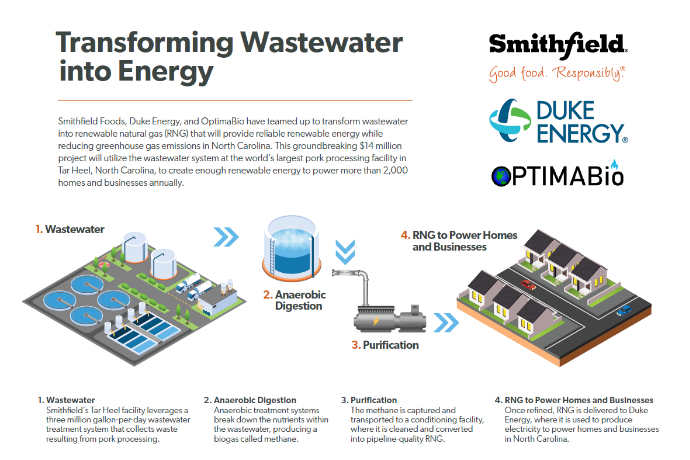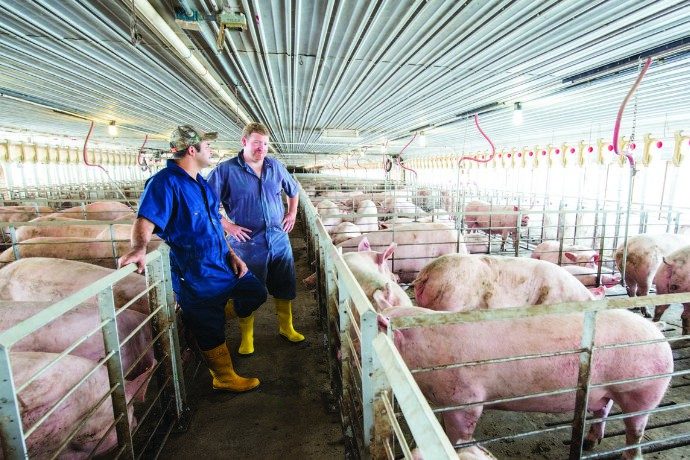SMITHFIELD, Va. — Smithfield Foods Inc. announced on Jan. 8 that it is now producing renewable natural gas (RNG) from the wastewater treatment system at its Tar Heel, North Carolina, pork processing plant.
The company partnered with Duke Energy and OptimaBio LLC, a bioenergy project developer, to complete the project that will help power 2,000 homes and businesses in the area.
Smithfield said the project cost $14 million to complete and will help the company’s overall goal of reducing greenhouse gas emissions 25 percent by 2025.
With its alliance with Duke Energy, roughly 140,000 dekatherms of RNG per year will be transported to natural gas plants and used to generate electricity for people.
"This project brings to life all three of our company’s guiding principles – Responsibility, Operational Excellence, and Innovation,” said Kenneth M. Sullivan, president and CEO for Smithfield Foods. “For the first time, we are creating renewable energy from the biogas generated in our wastewater treatment system and using it to power local communities. With the help of our partners, we are producing additional value for our company and our neighbors – a concept that is ingrained in our culture.”
 Source: Smithfield Foods
Source: Smithfield Foods
The Tar Heel project uses a gas upgrading and injection system operated by OptimaBio LLC. The facility’s wastewater treatment system, which runs three million gallons per day, collects an cleans biogas through an existing on-site digester and converts it into RNG.
“We are proud to partner with Smithfield on this project, which has far-reaching and positive impacts for the environment, the local community, and industries that are key to the state’s economy,” said Mark Maloney, CEO and founder at OptimaBio LLC. “We’re helping diversify and strengthen North Carolina’s renewable energy portfolio through this endeavor.”
After the RNG is converted it is incorporated into the Piedmont Natural Gas system, and then transported to Duke Energy to produce electricity. Smithfield said this project will help Duke Energy satisfy state swine waste-to-energy mandates under the Renewable Energy and Energy Efficiency Portfolio Standard law in North Carolina. The law requires Duke energy to generate 0.2 percent of its retail sales from swine waste by 2024.
“At Duke Energy, we are seeking innovative and cleaner energy solutions. Buying the output from Smithfield's renewable natural gas project will allow us to expand our diverse generation mix in North Carolina," said Stephen De May, Duke Energy's North Carolina president. “This project is creating safe and affordable energy that customers can rely on.”
Other “manure-to-energy” projects are being developed by Smithfield Foods in at least six states including Arizona, California, Missouri, North Carolina, Utah and Virginia.
Smithfield completed a similar project in August 2019 when it connected a low-pressure natural gas transmission line from a company hog farm to the Milan, Missouri, natural gas pipeline.




